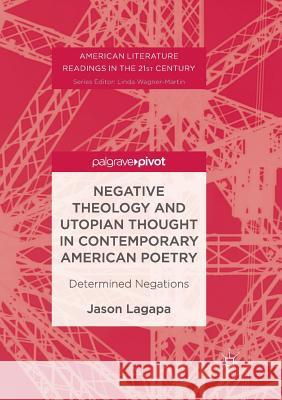Negative Theology and Utopian Thought in Contemporary American Poetry: Determined Negations » książka
topmenu
Negative Theology and Utopian Thought in Contemporary American Poetry: Determined Negations
ISBN-13: 9783319856179 / Angielski / Miękka / 2018 / 135 str.
Negative Theology and Utopian Thought in Contemporary American Poetry: Determined Negations
ISBN-13: 9783319856179 / Angielski / Miękka / 2018 / 135 str.
cena 214,97 zł
(netto: 204,73 VAT: 5%)
Najniższa cena z 30 dni: 212,02 zł
(netto: 204,73 VAT: 5%)
Najniższa cena z 30 dni: 212,02 zł
Termin realizacji zamówienia:
ok. 20 dni roboczych.
ok. 20 dni roboczych.
Darmowa dostawa!
Kategorie:
Kategorie BISAC:
Wydawca:
Palgrave MacMillan
Seria wydawnicza:
Język:
Angielski
ISBN-13:
9783319856179
Rok wydania:
2018
Wydanie:
Softcover Repri
Ilość stron:
135
Waga:
0.18 kg
Wymiary:
21.01 x 14.81 x 0.81
Oprawa:
Miękka
Wolumenów:
01
Dodatkowe informacje:
Wydanie ilustrowane











